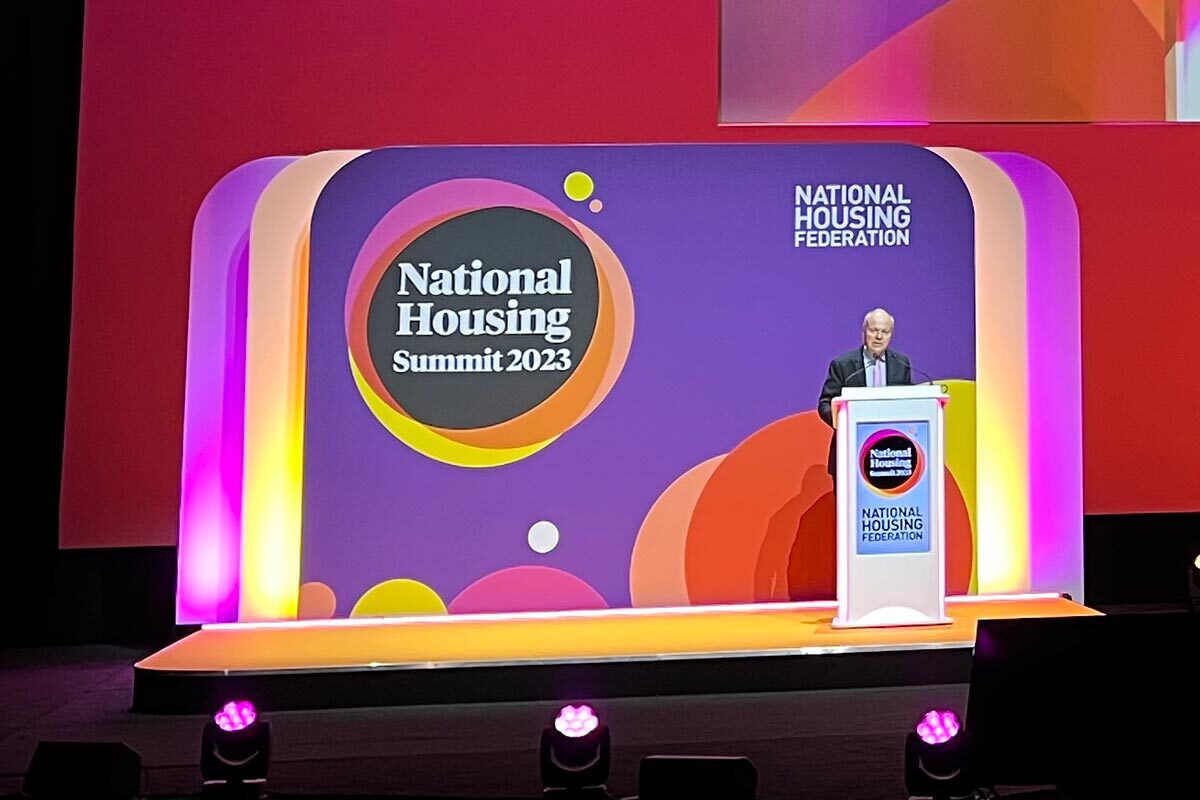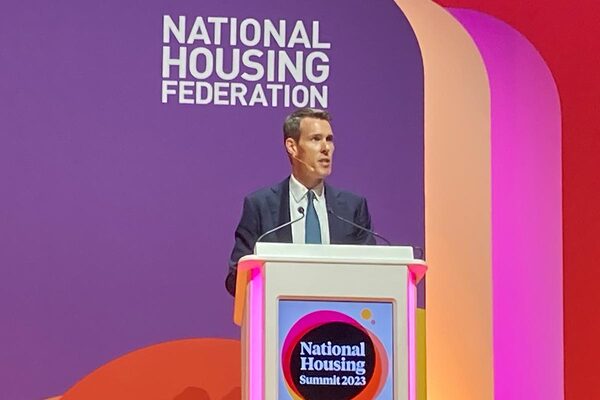You are viewing 1 of your 1 free articles
‘You’re the one with the money to actually help’ on damp and mould, committee chair tells Gove
The housing secretary should ask himself what he is going to do about damp and mould, the chair of the Levelling Up, Housing and Communities (LUHC) Committee has said.

Clive Betts told the National Housing Federation’s (NHF) Summit in Birmingham that Michael Gove asking social landlords what they are doing about the issue is “remarkable” when he is “the one with the money to actually help”.
He made the comments during the final session of the summit, where he outlined the evidence the committee has heard so far for its inquiry into the financial sustainability of the social housing sector.
Mr Betts announced the inquiry in March at the NHF’s Finance Conference in Liverpool. The inquiry has been hearing from social landlords on the financial challenges they face.
Mr Betts told the National Housing Summit that landlords spoke about the need for a long-term plan for housing, a shortfall of public investment – which is “getting worse” – the cost of building safety, the cost of development rising, the need for certainty on future rent increases, and the pressures of making existing stock fit for people to live in.
“[Regarding] the concrete developments in the 60s and 70s, these are not going to be patched up, there is going to be need for demolition, completed renovation, and assistance from Homes England and others to make that happen.
“Some of the really bad cases we saw as a committee when we looked at problems of disrepair, with those types of properties, you can’t simply send a plumber out or a plasterer to patch up some of the really awful conditions we saw,” he said.
Mr Betts referred to the letter sent by the housing secretary in November ahead of the request from the English regulator for all social landlords with 1,000 or more homes to submit evidence of their approach to damp and mould.
He said ahead of winter it was “vital” to know the extent of damp and mould issues in landlords’ stock and that these are being addressed.
Mr Gove said “to that end” he expected social landlords to do assessments of damp and mould issues affecting their properties along with action they have taken.
He wrote: “I hope you will join me in doubling down on our efforts to provide the high-quality social housing this country deserves.”
Mr Betts described the letter as “remarkable” in the context of all the demands on the sector.
He said: “It was remarkable that Michael Gove sent this questionnaire, information seeking, to all councils and housing associations saying, ‘What’s the problem with damp and mould? What are you going to do about it?’
“Well, the answer should have been, ‘What are you going to do about it, secretary of state, because you’re the one with the money to actually help us.’
“Everything is seen as almost an individual issue without trying to join up the demand that’s there.”
Mr Betts said he could not provide any conclusions as the inquiry is ongoing, but stated the committee would produce a report by the end of the year.
At the session, Kate Henderson, chief executive of the NHF, outlined where she thinks the sector is in terms of financially sustainability.
She said: “We are a sector that is under huge pressure. There is and has been a consequence with that funding cut in 2010, the 63% cut in the capital budget for affordable housing, the rent reduction from 2016 for four years to 2020 took a huge amount of money out of our sector.
“The issues of building safety, the cost of building safety – it is absolutely non-negotiable that we will make our buildings safe.
“But… there is no funding for remediation of properties with social tenants. It’s right that the government has stepped in to protect leaseholders, but it’s unjust, it’s unfair. So there are consequences of political decisions.”
Ms Henderson added that the sector wants to do net zero.
“But actually being able to make sure all of our buildings are safe, all of our homes are decent, all of our buildings are energy efficient and meeting future housing need is going to need a change in direction. And that’s why we’re calling for a long-term plan,” she explained.
Sign up for our development and finance newsletter
Already have an account? Click here to manage your newsletters











